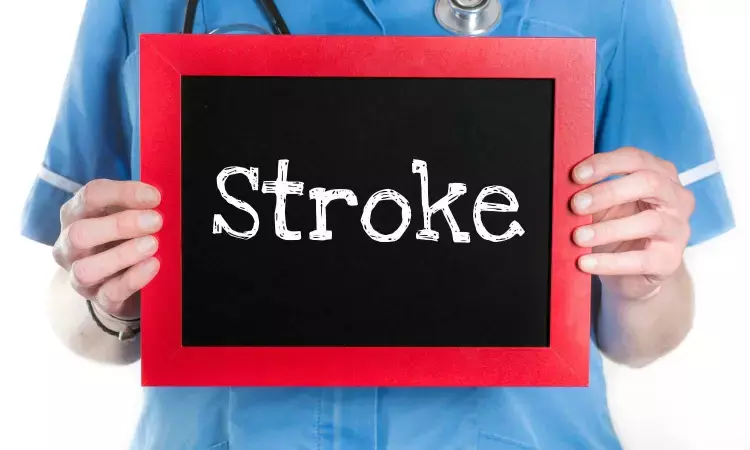- Home
- Medical news & Guidelines
- Anesthesiology
- Cardiology and CTVS
- Critical Care
- Dentistry
- Dermatology
- Diabetes and Endocrinology
- ENT
- Gastroenterology
- Medicine
- Nephrology
- Neurology
- Obstretics-Gynaecology
- Oncology
- Ophthalmology
- Orthopaedics
- Pediatrics-Neonatology
- Psychiatry
- Pulmonology
- Radiology
- Surgery
- Urology
- Laboratory Medicine
- Diet
- Nursing
- Paramedical
- Physiotherapy
- Health news
- Fact Check
- Bone Health Fact Check
- Brain Health Fact Check
- Cancer Related Fact Check
- Child Care Fact Check
- Dental and oral health fact check
- Diabetes and metabolic health fact check
- Diet and Nutrition Fact Check
- Eye and ENT Care Fact Check
- Fitness fact check
- Gut health fact check
- Heart health fact check
- Kidney health fact check
- Medical education fact check
- Men's health fact check
- Respiratory fact check
- Skin and hair care fact check
- Vaccine and Immunization fact check
- Women's health fact check
- AYUSH
- State News
- Andaman and Nicobar Islands
- Andhra Pradesh
- Arunachal Pradesh
- Assam
- Bihar
- Chandigarh
- Chattisgarh
- Dadra and Nagar Haveli
- Daman and Diu
- Delhi
- Goa
- Gujarat
- Haryana
- Himachal Pradesh
- Jammu & Kashmir
- Jharkhand
- Karnataka
- Kerala
- Ladakh
- Lakshadweep
- Madhya Pradesh
- Maharashtra
- Manipur
- Meghalaya
- Mizoram
- Nagaland
- Odisha
- Puducherry
- Punjab
- Rajasthan
- Sikkim
- Tamil Nadu
- Telangana
- Tripura
- Uttar Pradesh
- Uttrakhand
- West Bengal
- Medical Education
- Industry
Soft robotic gloves may help disabled stroke patients to relearn music

USA: A recent study published in Frontiers in Robotics and AI has shed light on the potential of a smart exoskeleton to aid disabled individuals in relearning dexterity-based skills like playing musical instruments.
Dr Maohua Lin from the Department of Ocean & Mechanical Engineering at Florida Atlantic University and colleagues introduced a groundbreaking "smart hand exoskeleton," a customised robotic glove designed to aid stroke patients in relearning dexterous tasks.
The glove has integrated tactile sensors, soft actuators, and advanced artificial intelligence, effectively mimicking natural hand movements and providing tactile sensations to support stroke patients in rehabilitation.
The main focus of the research involved training the glove using machine learning techniques to distinguish between correct and incorrect piano play, showcasing its potential as a novel tool for personalized rehabilitation. Though the initial design emphasizes music, researchers believe this technology holds promise for a broader range of rehabilitation tasks.
The researchers explain that the smart exoskeleton glove effectively aids in relearning manual tasks after neurotrauma and weighs a mere 191g. The glove's design consists of a flexible 3D-printed robo-glove with multiple layers, allowing it to precisely fit each wearer's anatomy. Its soft pneumatic actuators generate motion and force, replicating natural hand movements. Additionally, the fingertips are equipped with 16 flexible sensors, known as "taxels," providing tactile sensations when the wearer interacts with objects or surfaces.
The production process for the glove is straightforward, using a single moulding process to incorporate all actuators and sensors. It enhances the wearer's natural hand movements by providing support and guidance, enabling them to control the flexion and extension of their fingers.
To demonstrate its potential for relearning music, researchers trained the glove using machine learning algorithms to differentiate between correct and incorrect piano play for the beginner's song "Mary Had a Little Lamb." The glove operated autonomously and successfully identified correct and incorrect piano performances. Researchers believe this glove can serve as a valuable tool for personalized rehabilitation, enabling individuals to relearn playing music and improve their performance.
Looking ahead, the glove can be further programmed to provide feedback to the wearer, indicating what aspects of their play went right or wrong. This feedback can be delivered through haptic cues, visual prompts, or sound, empowering users to understand their performance and make necessary improvements.
While the study's findings show promise, some challenges must be addressed, including improving tactile sensing accuracy, enhancing exoskeleton adaptability and dexterity, and refining machine learning algorithms for better user input interpretation.
The researchers envision that patients may eventually wear these gloves to independently regain dexterity, motor skills, and hand coordination. The development of
this smart hand exoskeleton opens up new possibilities for individuals who have experienced neurotrauma, such as stroke patients, to regain their motor skills and engage in activities that require dexterity and coordination. As technology continues to advance, it has the potential to revolutionize rehabilitation and improve the quality of life for many patients on their journey to recovery.
Reference:
Lin, M., Paul, R., Abd, M., Jones, J., Dieujuste, D., Chim, H., & Engeberg, E. D. (2023). Feeling the beat: a smart hand exoskeleton for learning to play musical instruments. Frontiers in Robotics and AI, 10. https://doi.org/10.3389/frobt.2023.1212768
Dr Kamal Kant Kohli-MBBS, DTCD- a chest specialist with more than 30 years of practice and a flair for writing clinical articles, Dr Kamal Kant Kohli joined Medical Dialogues as a Chief Editor of Medical News. Besides writing articles, as an editor, he proofreads and verifies all the medical content published on Medical Dialogues including those coming from journals, studies,medical conferences,guidelines etc. Email: drkohli@medicaldialogues.in. Contact no. 011-43720751


